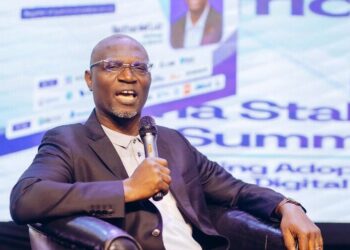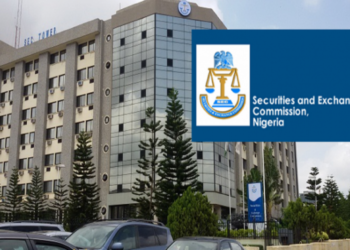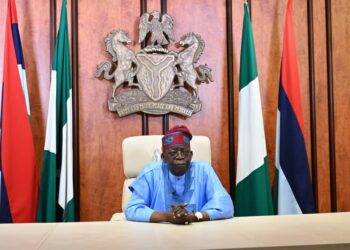As the saying goes, “If you are not in the school, do not criticize it.” I was reminded of its profound truth last week, when I had the privilege of accompanying the Board of Nigerian Exchange Group (NGX Group) on a historic visit to His Excellency, President Bola Ahmed Tinubu in Brasília, Brazil.
Public debates on economic reforms often resemble analyzing a dataset without controls: you see the raw numbers but miss the hidden variables that drive them.
The view from inside that room, however, was fundamentally different. It was the equivalent of running a fully specified regression model, one that captures the interactions, nuances, and true dynamics otherwise obscured by noise.
In economics, we warn about the perils of omitted variable bias: the risk of drawing flawed conclusions from incomplete data. Much of the prevailing criticism of current reforms suffers from this problem, focusing narrowly on short-term hardships while ignoring the structural shifts now underway.
Let me be clear: those hardships are real and deeply felt by millions of Nigerians, and they cannot be dismissed. However, from within that room, the model to address those very hardships, looked much clearer.
President Tinubu engaged in detail, not slogans. He pointed to the near tripling of market capitalization not as a vanity metric but as hard evidence of investor confidence. The data is compelling: in the past year alone, NGX’s market capitalization has surged from roughly N26 trillion to over N88 trillion. In statistical terms, that is not noise, it is significance.
His declaration that “Nigeria’s markets must be a trusted engine of enterprise and prosperity” felt less like a soundbite and more like a principle being shared with those tasked with nurturing the market. His commitment to “pursue reforms that unlock capital, protect investors, and drive innovation” was specific and reassuring.
This clarity resonated across the entire delegation. Alhaji (Dr.) Umaru Kwairanga, NGX Group Chairman, highlighted the rise in trading volumes and values, urging the fast-tracking of major state-owned enterprise listings alongside supportive tax incentives. Temi Popoola, Group MD/CEO, NGX Group, articulated a vision for NGX Group as a gateway for global capital, emphasizing modernized infrastructure, deeper product innovation, and expanded retail participation through digital channels.
Dr. Emomotimi Agama, Director-General, Securities and Exchange Commission, praised the new Investment and Securities Act (ISA) 2025, describing it as a transformative framework capable of propelling Nigeria toward a N300 trillion market while strengthening investor protection.
Together, these perspectives converged like a theoretical equilibrium, a point where policy, innovation, and regulation align. That convergence underscored a key insight: external commentary often misses the signal by focusing on the short-term statistical error term. The coefficients, from our vantage point, are pointing firmly in the right direction. Reforms are tough, but they are already producing statistically significant results.
No economic model is perfect, and every policy reform will leave residuals. But after witnessing the dialogue in that room, I am convinced that Nigeria’s economic strategy is deliberate, intelligent, and anchored in long-term growth.
The challenge before us is to evolve from passive criticism to constructive engagement: to contribute insights, data, and collaboration that strengthen the national model.
Nigeria’s future cannot be built from outside noise; it must be built from within the room. And in that room, the careful architecture of prosperity is already taking shape.
Our role as professionals is to build the bridge between policy and markets, to refine the calibration, and to ensure the capital market remains both a leading indicator and a driver of inclusive, sustainable growth.
























Thanks for this wonderful insight. It gives more motivation to work harder knowing our government are in the right direction.
As long as the people don’t feel the impact of the reform , it can never be uhuru.
At a time when the downtrodden expect elites to speak truth to power, the writer has achieved quite the opposite. As they say, the taste of the pudding is in the eating. Since 2023, the knee of the government miscalculation has been on the neck of the people.
x
In your article, you stated “the near tripling of market capitalization not as a vanity metric but as hard evidence of investor confidence.” This assertion flies in contrast to the YoY fall in FDI and collapse of the manufacturing sector. (Punch, Oct 24,2024).
There are a lot of things wrong with this article, including the covert falsehoods it seeks to peddle and vain attempt to whitewash a government that oversees the acceleration of dire poverty in the world’s poverty capital. In all, this article is a tragic reflection of the character of the writer.
What is wrong with these so called economist. How dose this add up to the billions of money extravagantly spent by this administration, and the increased borrowing every now and then. All the market capitalization you made mentioned are all vanity metric not any hard evidence that could better the lives of Nigerians. The data may be compelling: but they are just a mere figure that can not translate into making things better for Nigerians. This administration should get serious with fixing this country for good.